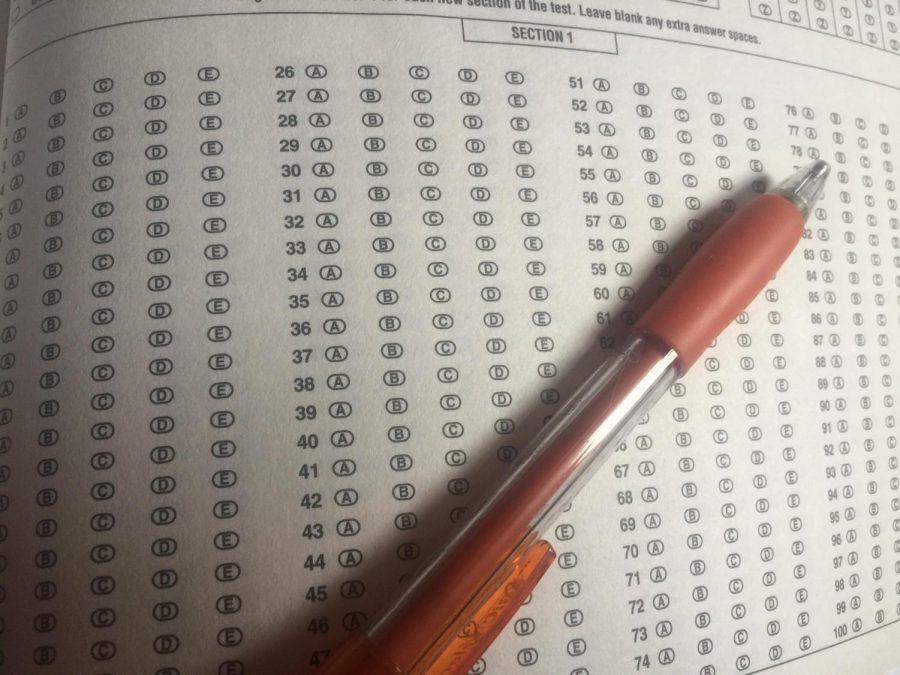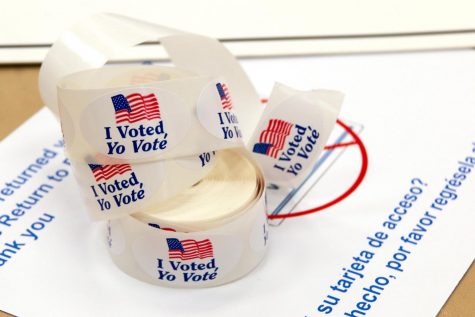College Board Announces Changes to AP Exams
Students will be able to choose whether to take a virtual or pen-and-paper test and whether to take tests at home or in-person.
AP exams are drastically changing, with both in-person options and full digital tests offered.
Due to the pandemic and continuation of online learning, the College Board has decided to change Advanced Placement (AP) exams this year to be as flexible as possible, prioritizing the health of students and educators instead of enforcing mandatory in-person tests.
This year, students can pick between one of three testing windows to complete their exams, with both in-school and at-home tests available. All cancellation fees are also waived in case a student decides to cancel at the last minute.
“AP exams will be much more accessible this year,” counselor Melanie Burch said. “We are back to full-length exams and in the same format we are familiar with. For those taking digital exams, the College Board has worked to design a better online exam and will be providing technical and support resources in advance.”
2021’s exam schedule consists of three sessions. The first session, beginning in early May, consists of a full-length paper-and-pencil exam that students who have previously taken AP exams would be familiar with. The second session starts in mid-May and gives students the option to take a full-length paper-and-pencil exam at school or a completely digital exam similar to last year at home. The last exam window in early June is digital exams, but can be taken either in school or at home.
Dunbar will be following the second option, with in-person exams as well as full-length digital exams as needed. The in-person exams will take place at Dunbar. Students will be required to wear a mask with proper social distancing in place.
Some exams are being offered in-person because some questions require symbols or diagrams that can’t be typed with a keyboard. Full-length digital exams will still be available to students in June for students that decide to take the virtual exam, except for World Language and Music Theory exams due to the easy access to translational and musical instrument apps.
“I was relieved to hear that my AP Psychology students would be testing online as this is how we have been testing all year,” AP Psychology teacher Mrs. Margaret Myers said. “In psychology, we also studied context-dependent memory in which information is better remembered in the context or environment in which it was learned.”
Students who are taking the full-length digital exam will be required to download a digital exam application, made available in April, on their computers. Digital exams cannot be taken on smartphones or other mobile devices due to the necessity of the application. This also means that if a student does not have access to a computer at home, they will need to reach out to the school to borrow a school Chromebook.
The application has been designed to work around internet disruptions during a student’s test. However, if a student does not have access to a stable internet connection, they will still have a hard time testing.
“If internet problems were a concern for ANY student, I have no doubt that the school would help them troubleshoot ahead of time, maybe even provide a place at school where the test could be taken,” AP Biology teacher Mrs. Elizabeth Pelphrey said.
An exam setup must also be completed ahead of the exam day for testing and students must check in 30 minutes before testing begins. Information for testing will be regularly updated, and students should be sure to check their emails regularly during this time. The College Board has also released a more detailed guide on digital exam procedures.
“Students who have a PLD Chromebook keep it until they graduate. They don’t have to return them over the summer. If you are a senior and need a device to complete exams, there will likely be an extension that we can work out to keep your computer until after you have completed your exams,” Mrs. Burch said.
In addition to that, digital exams will also be more tolerant of testing disruptions due to internet problems, and certain questions will be adapted so digital test-takers can easily type out responses without stress.

My name is Wenbo Fan and this is my fourth year on Lamplighter. Since starting Lamplighter freshman year, I’ve learned that journalism can change the...

Hi! I’m Max and I’m a senior in the Math Science Technology program at Dunbar and this is my second year as a staff reporter for Lamplighter. I mostly...



























